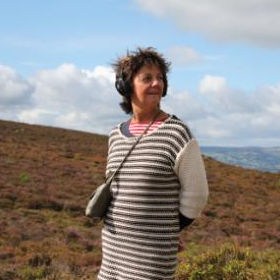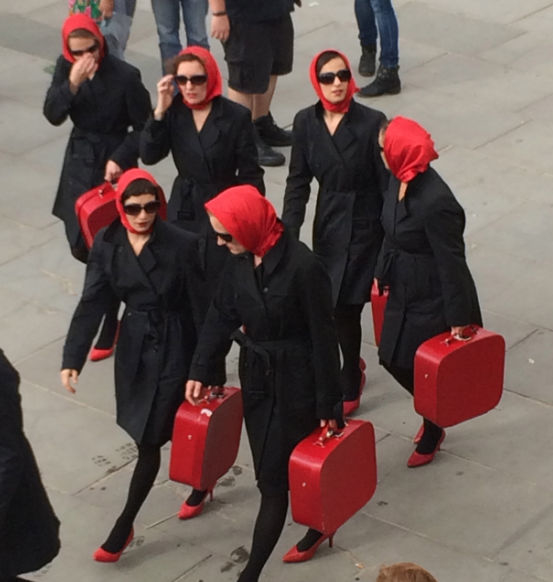Country or town – which makes for more radical theatre?
Why rural theatre can be just as innovative as its urban cousin

For one thing there are less purpose-built theatres and arts centres in which to perform, less transport connections, a more scattered population. But are these restrictions, or is there something liberating in making work outside of a familiar framework; can the countryside provide a canvas for creating something truly radical?
To Elizabeth Freestone, artistic director of Pentabus, the rural touring company which marked its 40th anniversary this year, the key difference between making work in the countryside as opposed to a city is "the release from self-censorship". There's a perception that things are cheaper outside of cities but, says Freestone, "it's actually more expensive to make work in the countryside because of transport costs, delivering equipment, buying in expertise and skills as they might be harder to find locally, travel and accommodation for everyone, petrol, slower broadband."
What you gain, she adds, is a sense of freedom, of distance, of release from feeling that you need to be "making work for your peer group, or of desperately keeping your cultural references ahead of the game, or making everything with an ironic eye."
In the countryside, Freestone says, it is easier to be fearless because the work you're making is "for real people not industry people. In the countryside nobody comes to your work for any other reason than that they are interested in it. Not because they think they should, or somebody told them to, or they're making their own show and they want to compare it. People come because the work talks to them."
"In the countryside nobody comes to your work for any other reason than that they are interested in it"
The relationship between audience and performer are different too. More often than not it's a case of taking your work to an audience rather than having them come to you so the power balance is different, the rules subtly changed. You create 'pop-ups' and repurpose spaces because it's the best way of presenting work, rather than because you're keen to stay on-trend. Take Paines Plough and their portable Roundabout auditorium, which can be flat-packed and transported anywhere in the country allowing them to showcase new work in a far greater range of locations and settings."You can't not be radical when you're in that kind of conversation," concludes Freestone.
But this does not mean that subversion is impossible in an urban environment. Some of the most interesting and exciting work happening right now is that which makes you explore your relationship with the world around you, be that the city you live in, or the building in which the work is performed. The directors of this year's BE Festival turned the Birmingham Rep inside out, performing work in the backstage spaces and inviting the audience on stage for a shared meal; for the past four years the West Yorkshire Playhouse has been examining both its Leeds surroundings and its own building during its annual Transform Festival; in London the Secret Theatre project saw the Lyric Hammersmith trying out new models of making and presenting work during the period in which the building was being refurbished.

Then there are companies like the Clod Ensemble, whose work engages directly with the landscape of whichever town they are performing in, making audiences look at the world with fresh eyes. Their ongoing, evolving Red Ladies project, which began in 2005, is designed to make you "pay attention" says company co-founder Suzy Willson. "Part of what the Red Ladies do is draw your attention to what's going on; they survey the landscape."
The Red Ladies make you think about public space, how it's used, how it's monitored. They watch. They flock. They perch on roofs and loiter in corners. "They map the city," adds Willson, "they find their own path."
So while the countryside, both the landscape itself and the particular challenges of staging work within it, can act as a spur to experiment, to innovate, in cities too, even in in the most familiar of places – the Red Ladies are colonising the Southbank this week, before travelling to Malvern and Margate – there are ways of stepping outside the lines, going off grid, off road. But you need to be mindful of your environment, and keep your eyes open.












